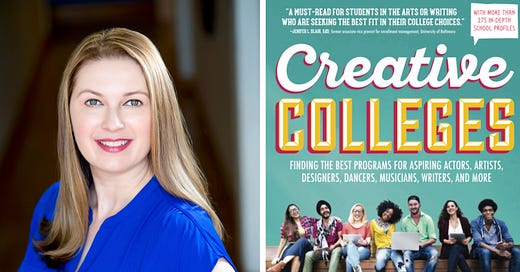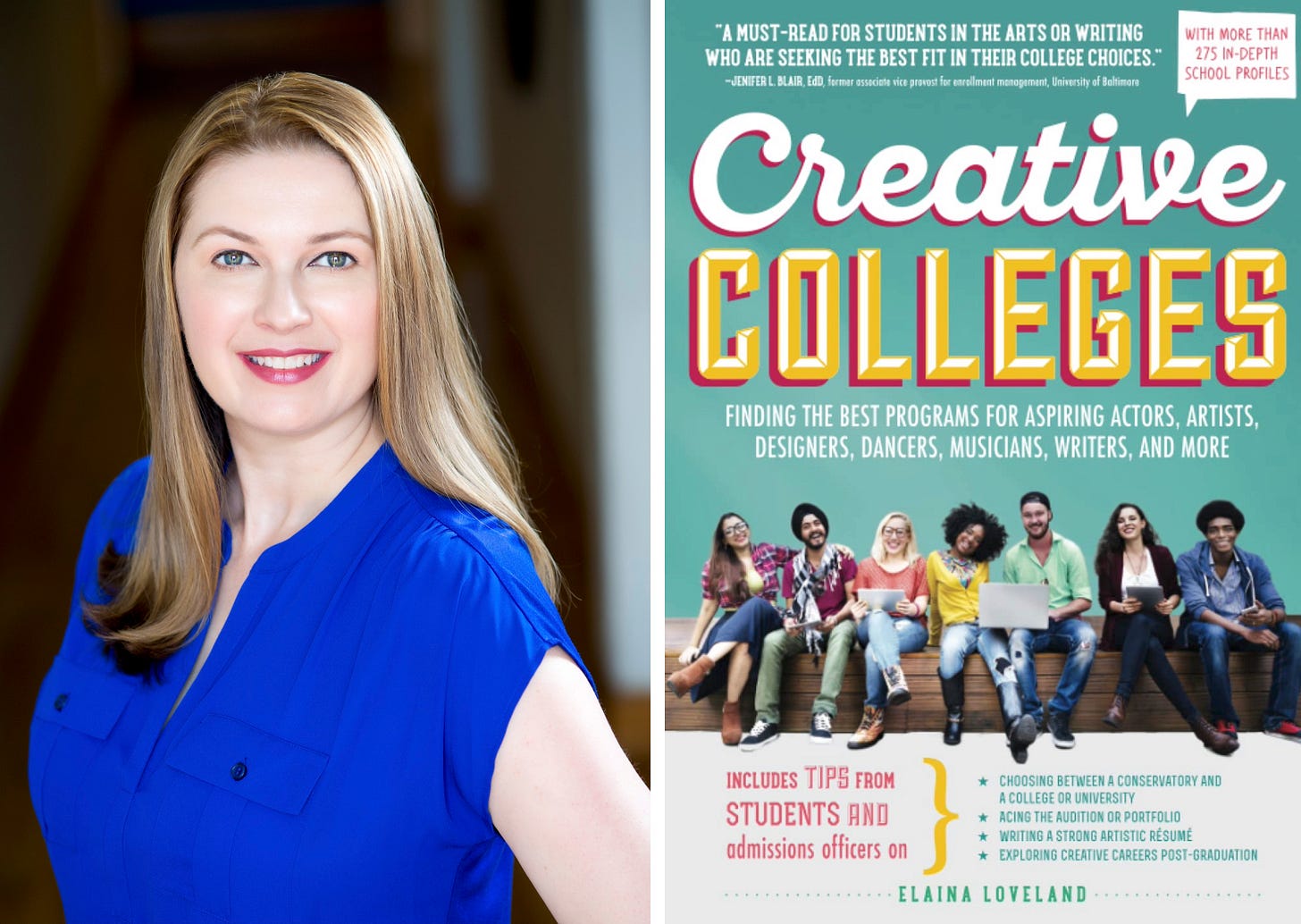Stage Dad: College vs. Career
Author provides advice for parents to consider as their child mulls their future
Emotional truth: Most parents dream of the day their child earns a college degree, ready to launch into a career that will provide them with financial stability and long-term happiness.
Factual truth: College is not for everyone. And even if you graduate at the top of your class, there are no absolutes or guarantees about your future career.
As parents, reconciling those two truths can be difficult under any circumstances. My wife and I are the children of educators, and we have both have worked in and around schools for much of our careers.
When our children were little, Jill and I started having conversations about saving for their education. Even though paying for daycare at times was a struggle — economy of scale does not exist when you have three kids in a calendar year — our long-term plan involved putting away money so they could go to college.
Given our backgrounds, it was safe to assume they would have that in their plans, right?
Wrong. Two of our four kids — Nick and Emma — went down the higher education path. Ben and Kate, for various reasons, did not step foot onto a college campus except to support their siblings. To make matters more interesting, three of the four (Ben, Emma, and Nick) wanted to pursue careers in the performing arts.
The family together with Emma at her 2019 graduation from Point Park University.
Taking different paths
Ben, having worked professionally since he was 9, had the most nontraditional path. His training came largely on the job, and by the time he was 18, he had built up a resume that rivaled many of his adult peers. For him, the college experience was mirrored in two shows — the “Newsies” tour and “Mean Girls” — where he worked with professional peers that were near or around his age. In his particular circumstance, higher education was not necessary, but it is the exception rather than the rule.
Nick received his bachelor’s degree in theatre, then — like many aspiring performers who decide in the long run it’s not for them — opted for a career in graphic design and went back to school for his master’s degree. Emma graduated in three years, earning bachelor’s degrees in dance and sports, arts, and entertainment management. She is now living in New York, working a series of jobs, and pursuing her performance dream.
Now, with admissions for college freshmen mostly decided for this fall, high school sophomores and juniors are gearing up for a marathon of intensives, applications, auditions, and the like. For this installment of “Stage Dad,” I wanted to provide some food for thought for parents of kids like Nick and Emma.
A look at ‘Creative Colleges’
Elena Loveland is the author of Creative Colleges: Finding the Best Programs for Aspiring Actors, Artists, Designers, Dancers, Musicians, Writers, and More. First published in 2005 and now in its fifth edition, the guidebook is a terrific resource for parents and their kids who want to pursue their passion.
A former dancer who has been a magazine writer and editor for more than 20 years, Elena (formerly Elaina) wrote the book because she “felt a lack of support to pursue the arts. I wanted to dance, and I wanted to write,” she said in an email interview. “I knew there were other students who felt the same.”
To Elena, the book is designed to be a resource for students, especially those who don’t have the support from parents and educators who “had the right knowledge to guide them toward making a decision about how to pursue the arts beyond high school.” She surveyed 1,400 higher education institutions to choose the recommended programs listed in the book’s reference section.
Here are highlights from our interview. Edits have been made for length and clarity.
What three things do parents of aspiring performers need to know about the college admissions process?
One, the admissions process varies depending on the type of program the student is considering. If a student wants a bachelor of fine arts degree (BFA) from a conservatory or conservatory-like program, the artistic component is much more important (in most cases but not all) than a public university or liberal arts college.
Two, students really need coaching from teachers for auditions. It really should not be a last-minute thing. It should be preparation that lasts months.
Three, not all performing programs allow students to perform immediately upon matriculation. Some programs have students wait until after their freshman year to perform. Students should find out this information if they don’t know if they want to wait to perform. It is usually the larger programs that have this requirement — there just are not enough roles for every student, so seniority matters.
What misconceptions do parents have about careers in the performing arts?
I think every parent worries that their child will be impoverished. The performing arts can be a tough profession, but it can also be lucrative. It can also provide a path into other parts of the industry other than performing. The arts as a whole is an enormous economic sector, which parents probably do not realize. There clearly are jobs in the arts.
Nowadays, with the Internet, students can also build online followers and directly reach people in the field that was impossible decades ago. So, the opportunities for an aspiring artist to become known are greater than they once were.
College is so expensive now, even more so than when you first wrote these books. What do you say to parents who don’t want their child — no matter how passionate he or she is — to major in the performing arts because of the cost and the future uncertainty?
I understand from personal experience about crippling student loan debt. I had to pay my parents’ portion of college costs because they stopped paying for college after my freshman year. I owed nearly $70,000 in 1999, which was unheard of then when the average graduating college student had about $17,000 in debt. I was not eligible for Pell grants due to their income.
I took out the maximum of federal loans, but I still had to go to a private bank to get private loans at about 9 percent interest, which ballooned to that nearly $70,000 debt I incurred at the tender age of 21. I wanted to finish college on time and did not want to drop out or delay my degree. I finished a semester early to avoid taking on more debt.
That’s why I could not even consider pursuing dance as a career. I had to repay student loans. Auditioning was just not an option for me. I felt writing my books and teaching dance part-time was how I could continue being involved with the arts in my personal situation.
What should students do to avoid finding themselves in your situation?
I recommend students go to an institution that is the lowest cost to them, and if their parents do not contribute, either go to a community college or wait until age 24 to attend college. If you are under 24 years old, your parents are expected to pay the EFC, or expected family contribution, which can severely limit or eliminate financial aid.
If your parents are supportive and contribute toward tuition, pursue what you want in the arts but also consider a double major as a backup in case your dreams change or take a turn that you don’t expect and you need to rely on another career.
If you need to 100 percent fund your own education, go to a community college or wait to enroll until age 24 so your parents are not expected to pay for college. That way, you can use your own income to qualify for financial aid, which will vastly reduce the cost.
Should those interested in performing as a career have a “back up plan”?
All students should identify a primary interest and a secondary interest for their future. For students interesting in performing, their backup plan might still be arts related such as arts administration, art therapy, or education at the K-12 or postsecondary level. Or, they may have completely different interests such as business or technology. A dancer I knew in college always wanted to be a doctor—she is now an orthopedic surgeon.
Dreams and circumstances can change. Knowing what you are good at—in the arts and maybe something related or something else—can help provide a sense of calm and confidence that you can succeed in one or more areas professionally.
You’ve written a second book, Creative Careers: Paths for Aspiring Actors, Artists, Designers, Dancers, Musicians, Writers, that unfortunately is no longer in print. What did you discover from your interviews with those who are working in various arts professions?
One thing that stood out to me from interviews I did for Creative Careers is to be prepared every day for an opportunity and to be resilient. Many of the professionals I interviewed had windy paths to their success, and many had setbacks along the way. It took determination and a bit of luck for them to achieve the success they did. If one (or both) of my kids decide to pursue the arts someday professionally, I will remind them of this wisdom that was shared with me.
If you like this post, how about pressing the “heart” button? It helps me reach others with this resource.




